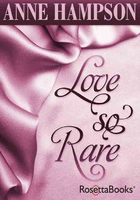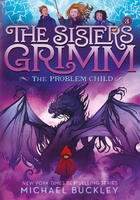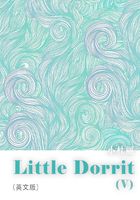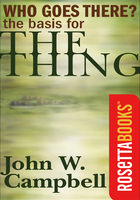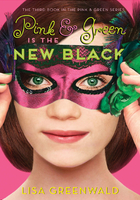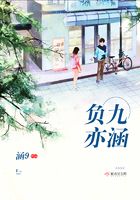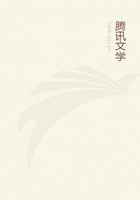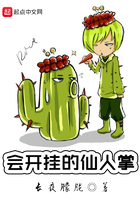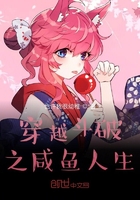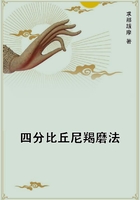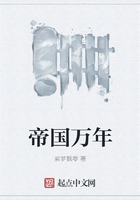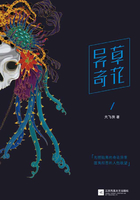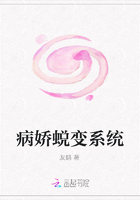"Sometimes, the Angel [of Music] leans over the cradle …"
Gaston Leroux, The Phantom of the Opera
My dad first discovered my "gift" when I was four. I was in the living room with him, building a block tower as he practiced on his treasured Stradivarius violin. Up to that point, he played only concertos, overtures, and sonatas. But he'd decided to try his hand at an operatic accompaniment that day.
I stopped what I was doing, staring up at the stringed instrument. Dad said it was like I was seeing the violin for the first time, although I'd heard him perform since my birth. Knocking down the blocks in my path, I toddled over, placed my hand on his knee, and hummed the opera's tune—the one he'd never played before—in perfect pitch.
When he asked me about it afterward, I answered that his violin sang words to me. They told me how to see a rainbow and follow the colors with my voice … he called them auras. He was convinced I was seeing musical scales come to life—that I had a connection to the energized pulses of music. Mom returned from the grocery store in time to catch our discussion. She got annoyed, insisting Dad was being melodramatic. She blamed his superstitious upbringing and overactive imagination, two things that I—according to her—inherited from him. Her father had been a fanatical small-town preacher and had forced religion down her throat for so long, she'd turned her back on anything remotely spiritual or supernatural the minute she was old enough to leave home.
To this day she still shuns all things otherworldly, but her skepticism about my voice died a swift death as she herself sat a few days later, stunned and muted, while Dad played a recording of a Spanish aria sung by a vocalist in accompaniment. I sang along, executing every foreign lyric and note as if I were the world-renowned diva. This from a toddler who'd only recently learned to sing her English ABCs.
After that, Dad began accompanying operatic recordings regularly, and many times, I would join in unprompted. One day, as we put on a concert for some close friends, Dad stopped and dropped his bow, listening in reverent silence with everyone else as I finished out the song in perfect German. But without his violin guiding me, something changed. I still carried the song perfectly, until the final pristine note.
At that point, the vivid prismatic colors of the melody dancing around my head bled to a thick red glaze that tinged my vision. I dropped to my knees, trembling and nauseated. I was sick the whole night.
Dad decided it was performance anxiety, that I needed him as an accompanist for support. I became his marionette and he my puppeteer, and I loved every minute of it. At first, he concentrated only on the arias I responded to, and as long as we were bound together by strands of music, his violin's voice leading me, I could sing without incident. Then he taught me new songs. Each one lifted me higher, gave me more confidence. By the age of six, I was invincible. No note was out of range, no composition too complex.
He and Mom agreed I was too young to go public. They wanted me to have a normal childhood, so we didn't seek out formal training, and we kept our rehearsals private.
Dad encouraged my budding talent at every turn—he was my biggest fan—until he was diagnosed with cancer. When he became too weak to accompany me with his violin, I tried to keep singing for him, in hopes to give him the strength he once gave me. But since the musical ties between us had been snipped away, my performances left me exhausted. I ignored the flu-like symptoms and kept pushing myself just to see him smile.
Yet no matter how pristine the clarity of notes, or how genuine and evocative the emotions interpreted through song, I couldn't lift him out of the mire of feeding tubes, catheters, and chemotherapy. I couldn't change his fate.
After he died, my grandmother insisted it was my fault. That my unnatural gift had somehow drained my father of life and killed him.
I can't shake the belief that maybe in some way she's right. How can something so strange and inexplicable be healthy or good? It's not. I know that much. I know it by what happened between me and Ben. Although I'm hoping he'll be okay, I'm also hoping that if he wakes from his coma, he won't remember a thing. He's the only other witness.
My shoulders slump at the thought of last time I saw him, hooked up to IVs and machines in the hospital, just like my dad before he died.
For my part in Dad's death, Grandma Liliana wanted to send me to hell. An old woman terrified of a young child. Whereas Mom was, and is, convinced I'm the one with fears. She's oblivious to the dangers, sees my curse as a talent, and thinks that with practice, I'll get over my stage fright and learn to perform for the public one day.
If only.
It was hard enough feeling normal in Texas. At least there, an operatic aria popping up unexpectedly on the radio was a rare event. I don't know exactly what the trigger is. Although it's always a woman's aria, it's not every single one I hear. Some speak to me, some don't. But once the spark has been ignited, the music eventually wins. And at RoseBlood, I'll be exposed to opera every day, and forced to purge the notes in front of strangers who will see me at my most vulnerable.
No more blending, quiet like a raindrop siphoning into a stream on a windowpane.
Tiny rivulets of water jostle on the limo's window, and I rest the knitting needles in my lap, forehead pressed to the glass. Coolness seeps in to counteract the hot rush rising from my neck to my face. Through the leaves, the sky darkens, as if borrowing from my mood.
"I don't know why you're being so morose today," Mom says, the cadence of her words dancing around me like a taunting chime. "You've always talked about being involved with Broadway or theater. How's opera any different?"
"Behind the scenes." I attempt to reason with her. "A costume or makeup designer." In a last-ditch effort to change her mind, I pull out all the stops. "This is so unfair. I never asked for any of it." I start up the knitting needles again, slower this time, and my pulse settles to a calm rhythm. The song recedes into my subconscious, but it's only a temporary reprieve. It will be back.
Mom's suit rustles. She grips firm, warm fingers around my jaw. I set aside my sweater to study her features, each one shadowed with disappointment.
"Oh, you asked for it," she says. "You made poor choices. So now we're going to get your life back on track. And the first step is surrounding you with kids your age." She releases my chin.
And there's where RoseBlood's small populace of fifty students, made up of sixty percent juniors and forty percent seniors, comes in handy. That particular detail from the brochure stood out loud and clear while I was reading on the plane.
I stuff my knitting into the bag and kick myself for the thousandth time for going to that college frat party at the beginning of school. Getting drunk that night had nothing to do with the fact that I feel more comfortable around college kids than my own classmates. But I know better than to admit that to Mom, because were she to know the real reason I took that first sip of beer, she'd turn this limo around and drop me off in Versailles with Grandma Liliana. Bloodthirsty birds of a feather belong together.
"It's the only time I've ever touched alcohol," I say over a catch in my throat. "Can't you give me another chance? I made one stupid mistake and you're sending me to prison." It might sound like a barb, but prison is something I probably deserve, which makes it a legitimate fear. "Just admit it. You want me gone so you can play house with your new fiancé without me there."
"RoseBlood is hardly a prison," Mom says. "How many foreign boarding schools offer admittance only to American kids? This is a rare opportunity … a taste of French culture in a setting that feels like home."
I suppress the desire to point out that she's quoting the Rose-Blood brochure almost word for word, and instead focus on how she avoided my accusation about her fiancé. A burst of contentment sneaks in unexpectedly. I smirk on the left side of my face. I won't risk the right because she might see it.
I'm so glad she's met someone after all these years of raising me alone. And Ned the Realtor is a really nice guy who treats Mom like a queen and me like a princess. I'm actually glad he moved in. It's nice to have some semblance of a family again. Still, I'm not about to admit any of that since I've found some leverage.
"No Wi-Fi in the place," I say. "That means no Internet access. And we're out in the middle of nowhere with no cell phone service. How am I supposed to stay in touch with you … with Trig and Janine … anyone on the outside?"
"They do have a landline, Rune. You'll be able to call home." The other half of my smirk has found its way to her mouth. "As for the absence of texting … I've got the perfect substitute." She bends over to sift through the shopping bags at her feet, the small ones that were left over after stuffing the trunk full.
I watch, suspicious, as tissue paper crinkles beneath her fingers. We spent the morning driving through the Louvre-Tuileries neighborhood, touring the grand squares, gorgeous gardens, and trendy bistros from the comfort of our limo. We visited several boutiques but were never apart any longer than it took for me to try on my uniforms—three sets comprised of a fitted jacket, vest, long skirt, and ruffled shirt—that look more like Victorian riding habits than any modern dress code. Even the gray, white, and red color scheme is drab and lifeless enough to make us all look like wax museum rejects. Mom stood there and handed me the separate pieces from the other side of the dressing room door. So when did she have time to shop behind my back?
Wrist-deep in a zebra-striped bag fringed with pink feathers, she draws out a rectangle. Tissue paper loosely drapes the gift.
I take it, biting my inner cheeks to contain a smile. She knows how much I like presents. Both getting and giving them. "What did you do?"
She shrugs, the same mom who used to insist we open one Christmas gift a week early every year because she couldn't stand to wait any more than me. I love that side of her.
I feel a prick behind my sternum, as the biggest reason I don't want to attend this foreign school hits me hard and sudden. For the first time since we lost Dad, my mom and I are about to be apart.
An ocean apart.
I force myself not to look at her, afraid I'll break down.
With stiff fingers, I unwrap a fabric-covered box of rich brocade—black and gray striped with red-ribbon embellishments. A hinged lid opens to reveal fancy French stationery. Lacey black scallops trim the edges. The paper is a grayish shade, as soft and translucent as the light filtering through clouds outside. When I hold up a piece and open my hand behind it, I can see the silhouette of my fingers and palm. An embossed ribbon, shimmery red to complement the satin ones on the box, embellishes the stationery's top. Matching envelopes are tucked in the corner next to a black feather quill. The set is exactly what I would've picked for myself.
"So … I'm supposed to write to everyone?" I ask, hiding how touched I am. "Kind of archaic, don't you think?"
She tilts her head, smug. "Looks like you won't be in solitary confinement after all."
The smile I've been suppressing pushes its way out. "But I don't have addresses or postage."
"Ah." She digs a roll of global stamps and an address book out of the zebra sack. She must've had them hidden in her overnight bag.
Sneaky. Another thing I've always loved about her.
She points to the red ribbon embossed on the stationery. "Did you really think I'd let you be thousands of miles away from me without a thread to bind us?"
Just that one reference and I'm back at the beginning of first grade, afraid to leave her side until she reached into her purse and retrieved a long red strip of yarn, tying it around my wrist. We'd spent the night before in Dad's hospital room, talking on a toy phone made of empty soup cans and yarn. I'd poured out all of my fears to both of them, and they'd comforted me. When we left the hospital, Mom pulled the yarn from the cans and promised that all of her and Dad's love and protection were woven inside the thread, and as long as I had it with me, they'd be there.
I still have that strip of yarn, marking a passage in my favorite fairy tale picture book that Dad used to read to me: Les Enfants Perdus, which translates to "The Lost Children." It's an old-world French version of Hansel and Gretel, a bit more grim, with the devil and his witch-wife holding two lost siblings—Jean and Jeanette—hostage in a forest. Together, the children escape, using their minds and wills to murder and outsmart their dark tormentors before they can be eaten. Although the book's pages are water damaged and crumpled, I've never thrown it away.
I'd been so upset on the plane when I realized I forgot to bring either of those keepsakes to Paris. But Mom found a substitute for the red string.
"Wow, Mom—"
"Oh, and there's this, too …" She hands me one other tissue-stuffed bag.
"Hmmm. Maybe I should go off to school more often after all," I tease, dragging out the tissue. My breath catches at the glossy, brand-new Les Enfants Perdus staring up at me—as though she's been reading my mind all along.
She shrugs when I turn a questioning glance her way. "It was in a display window at one of the shops this morning. It's a modern edition … and the illustrations are different. But it's the same story. Now you have your thread and your book to tie us all together."
My eyes sting. "Thank you."
She pats my hand and we share another smile. My lips wobble as I thumb through the pages, remembering Dad's deep, strong voice reading the text to me in flawless French. I miss that so much. Just like I miss him speaking to me with his violin. When he got bad enough that we had to check him into hospice, I took up sleeping with the instrument under my bed every night. It almost seemed like a part of him—maybe because each time he played, he'd cradle it as one would a precious child.
I'd still have it with me to this day, had it not gone missing when Grandma Liliana first arrived in America. Mom suspected she took it, and confronted her. Grandma admitted mailing it back to Paris. Mom was furious, assuming she wanted to sell it due to its value. It was a one-of-a-kind Stradivarius, handcrafted of wood so black and glossy I used to think it had been carved from an oil slick. The scroll curled at the neck's tip like a snail's shell, adding to its uniqueness. But Grandma selling it didn't make sense. The instrument had been a family heirloom since the early 1800s. One of our ancestors, Octavius Germain, had even engraved his initials on the lower bout, just inches from the waist of the instrument. I used to trace my fingers along that O and G, imagining a man in Victorian finery playing the very instrument my dad loved.
Now, sitting here with this book in my hands, I think maybe we misjudged Grandma's motives. Maybe—just like I needed that piece of red thread to brave being without my parents that day in first grade, and this book to give me courage at a new school—she needed a piece of her son to be waiting at home for her, so when she returned she could survive in a world he no longer occupied.
I glance into the distance and swallow the words I want to say: Mom, I still miss him. Every day. I don't want to be away from you, too. I don't want to be alone.
Our limo slows to a crawl as we take a stone bridge over a giant river. I lean into the window, unnerved by how close the water is. Were it to rise just a few more feet, it would overlap the bridge. The river encompasses the academy on all sides, similar to a moat. The only land is the hill where the academy sits, and the eighty-some acres of woods surrounding it. Without any way to cross, it would be like an island unto itself.
I return the stationery box and my book to their bags. Unease roils through my veins in time with the blue-black depths swirling beneath the limo. According to the pamphlet, the water even surges underground beneath the estate's foundation, flooding the third basement.
Water. My least favorite element, second only to fire. And now I'll be surrounded by it. The fact that the rain has finally subsided relaxes me a fraction. Fog settles across the landscape, clinging low to the road as we roll off the bridge. RoseBlood Academy rises up, grim and ominous. The baroque architecture, looming and majestic, looks more like a brooding castle than an opera house in this isolated location.
The auditorium's cupola—a cap of bronze that cuts through the dreary sky like a ghostly crown—descends to a gabled roof where a winged horse stands guard beside Apollo. The god lifts his lyre, as if it were a bow and arrow. In the Phantom book, a similar roof played a pivotal and romantic role in the story line. It's where Christine met with Raoul and they claimed their undying love. They were spied upon by the Phantom, who then unleashed a series of events to punish them and make Christine his forever. But the school brochure claims this roof's stairway was sealed off along with the top three floors after the fire.
The driver turns the car onto the long, gravel drive leading up to the opera house. Glistening trees bend over us like sequined actors taking their final bow. As we plunge out from the overhanging limbs, I begin to understand the uniforms. It's as if we've crossed into an alternate time.
Ivy and lichen cling to the huge edifice. The wet fa?ade reflects our headlights so it appears an ethereal white, but as we get closer, the stone's true color comes into view. Time has eroded it to a scaly turquoise green, like a mermaid's tail. Antique street lamps—the kind you would expect to see on a Victorian greeting card—dot the front terrace and cast an eerie yellow glow in the grayish haze. So engrossed in the scenery, I barely hear the bags rattle as Mom puts away the stamps and address book.
The boarding school is flanked on one side by an overgrown garden. The early autumn blooms follow their own call; silvery-green leaves, crimson roses, and frothy white flowers tumble like waves across a wrought-iron fence that at one time held them contained.
Behind the garden, off in the distance, sits a graveyard and a chapel. The abandoned stone building stands tall and proud, despite that it's every bit as old and decrepit as the headstones and statues surrounding it. Busted stained-glass windows glisten like the talons of some violent rainbow creature slashing through the fog. Yet even in its sinister beauty, it seems to cower in fear from the encroaching forest's shadow creeping closer with evening's arrival.
Our limo cruises around to the other side of the academy. Pebbles grind beneath the tires on our coast into a gravel parking area across from the garden. Mom starts digging in her purse, mumbling about lipstick. Out of the corner of my eye, I catch someone half covered by a rosebush that hangs over an iron spike. I angle myself to see him better, nose pressed against the chilled glass.
His tall body turns and watches us, broad shoulders tensed. He grips a cluster of deep red roses—so velvety they're almost black on the edges—and holds a pair of pruning shears in his other hand. The tails of his cape swirl on the wind, stabbing at the fog around his muddy boots. The vintage clothing seems out of place in our century, yet right at home in this setting.
He appears close to my age. The left half of his face stands out beneath the hood: one side of plump lips, one squared angle of a chin. Two coppery-colored eyes look back at me—bright and metallic. The sight makes me do a double take. As far as he is from the car, I shouldn't be able to make out the color, yet they glimmer in the shadow of his cape, like pennies catching a flashlight's glare in a deep well.
I've seen those eyes before—countless times—since the age of seven. But I can't even consider why I recognize them. I can't think beyond what they're broadcasting, loud and clear: He's warning us not to approach him—a part of the sprawling wilderness, neglected yet beautiful and thriving in his solitude.
Transfixed, I don't stop staring until Mom opens the glass panel to speak to the driver. A hot blush creeps up my neck and I glance at my worn Timberland boots, all too aware of the patchwork embroidered vest beneath my jacket and the faded and ripped boot-cut jeans hugging my legs. For the first time since I started sewing and designing, I'm uncomfortable in my bohemian style, even if it is a tribute to Dad's heritage. Here at this castle, faced with the stranger's somber formality, I feel too casual … wayward and misplaced.
I'm almost aching to put on that outdated school uniform.
When the limo stops, I brave a glance again, in search of the caped figure and those shimmery eyes. The gardening shears lie abandoned on the ground, and the cluster of red roses he held are now withered, leaving behind a whirl of petals—coal black and crinkled—aflutter on the wind.
An icy sense of foreboding prickles the nerves between my shoulder blades. The gardener's gone without a trace, as if he were never there at all.

